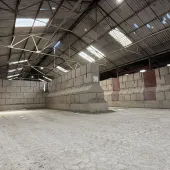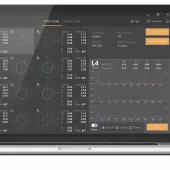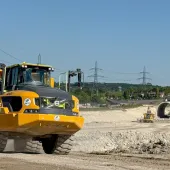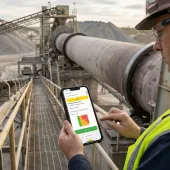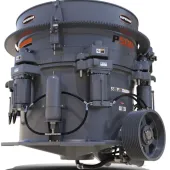TyreWatch solve problem for Imerys
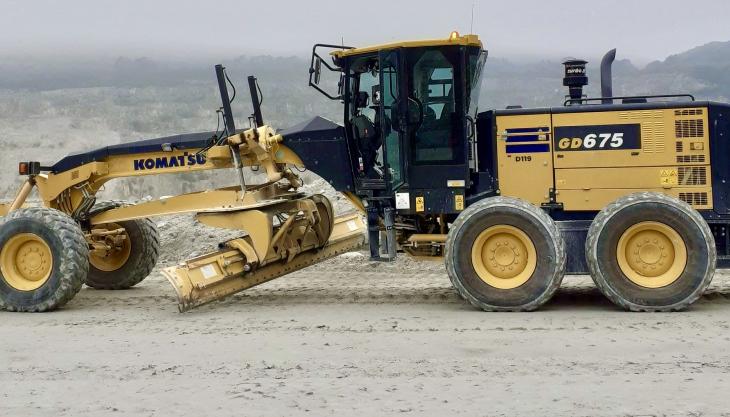
Quarry sector looks to TyreWatch for improved earthmover tyre safety and cost control
WITH the principal considerations for most quarry operators being health and safety and material extraction, and given the potentially dangerous working environments in the sector, the need for strict safety procedures is paramount – not only to protect personnel, but also to help maintain efficient production.
TyreWatch say their remote monitoring and control systems dovetail perfectly with these essential requirements, particularly as underinflated heavy equipment tyres cannot always be determined by visual inspection alone.
According to TyreWatch, large earthmover tyres can run underinflated for weeks, causing the tyre to over-flex. This, in turn, can cause the tyre to wear faster, the rim components to suffer premature damage and the potential for a serious incident to be ever present.
Moreover, it is well known that underinflation leads to shortened tyre tread lifespans and can make the tyre casing unsuitable for remoulding at the end of its first tread life.
TyreWatch’s sales and field technical manager, Peter Roffey, explained: ‘Running underinflated tyres leads to overheating and potential blow-outs, which inevitably puts site operatives at risk. Combine this with the extensive paperwork required to comply with the HSE’s RIDDOR directive and there is a perfect case for the TyreWatch system to ensure all-round safety and adherence to the law.’
According to Mr Roffey, TyreWatch customers are increasingly requesting tyre pressure and temperature data for their connected machines, to improve on-site working practices, and are embedding TyreWatch remote monitoring into their core operating systems.
In one such example, Imerys have reported a significant reduction in tyre replacement and vehicle downtime since installing a TyreWatch remote monitoring service at their quarry in Furzebrook, Dorset.
With a mixed fleet of off-road heavy plant and six bulk tippers, Imerys were looking for a solution to combat problems associated with tyre-pressure loss and, following a recommendation, turned to TyreWatch and their industry-specific PlantSmart telematics system.
‘In former times, we might have had no idea if a certain tyre was losing pressure or failing,’ explained quarry supervisor James Johnson, ‘so, with no opportunity to resolve the problem, we would have to take vehicles out of service and make emergency tyre replacements. This not only interrupted workflow but also presented a potential safety hazard.’
Having this type of connected solution, say TyreWatch, is the safe way to alert quarry operators to attend to tyre pressures in good time and, accordingly, TyreWatch deliver maintenance and warning notifications before the tyres reach a critical pressure. This allows the machines to carry on working with tyre repairs being planned for the end of the day or during a driver rest period.
Using the automatically captured data that TyreWatch provide also helps operators to look at site trends for tyre temperature peaks: large earthmover tyres heat up and take a long time to cool down, so real-time temperature records can help to reduce tyre overheat, which prevents loss of tyre service life, improves safety and reduces cost.
Peter Roffey added: ‘The best outcome for all quarry operators and owners is to invest in a connected system that simultaneously notifies the quarry management, maintenance teams and (by cab alert) machine operators of every low tyre pressure event.’
According to Mr Roffey, whilst TPMS is by no means a new concept, the TyreWatch telematics monitoring system takes it a step further by making sure all issues are monitored in real time without the need to rely solely on the driver or later visual inspections – which could be too late. The added benefit to the operator is paperless digital reporting which can be instantly accessed for all compliance checks and inspections.
‘We use the TyreWatch direct TPMS on our quarry-based vehicles with high-pressure tyres, while on the loading shovels, a pit tractor and our bulk tippers we use the IoT (Internet of Things) remote system – which also provides temperature monitoring,’ said James Johnson. ‘This is useful to detect any sudden temperature increases which could indicate a binding brake, hub failure, damaged suspension or incorrect wheel alignment.’
In addition to the in-cab alarm system, automatic alerts are sent to designated email addresses within the Imerys team, notifying of any events as they occur and automatically updating as the problem develops. ‘This allows us to monitor every tyre-related issue as it happens and to stay well ahead of any problems before they occur,’ said Mr Johnson.
By never running an underinflated tyre, Imerys say they are permanently saving on fuel and maintenance costs. Furthermore, by greatly reducing particulate emissions from tyre tread abrasion, the company is also helping to minimize its environmental impact.
TyreWatch say demand for their monitoring systems is also driven by the fact that, for safety reasons, instead of allowing site operatives to look after under-inflated tyres, trained tyre technicians used to be required. This led to extended call-out times and often required specially adapted tyre-fitting vehicles – both of which combined to increase downtime and cost.
‘We’ve saved many tyres using TyreWatch, and the safety and environmental aspects are far-reaching,’ concluded Mr Johnson. ‘We have certainly embraced the benefits of TyreWatch predictive tyre management and, I’m pleased to say, so too have all of our quarry transport contractors.’



